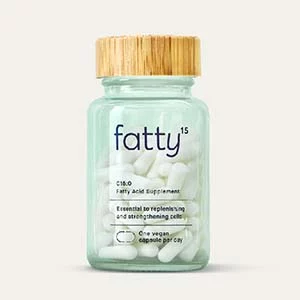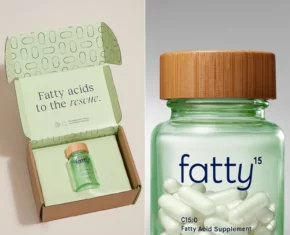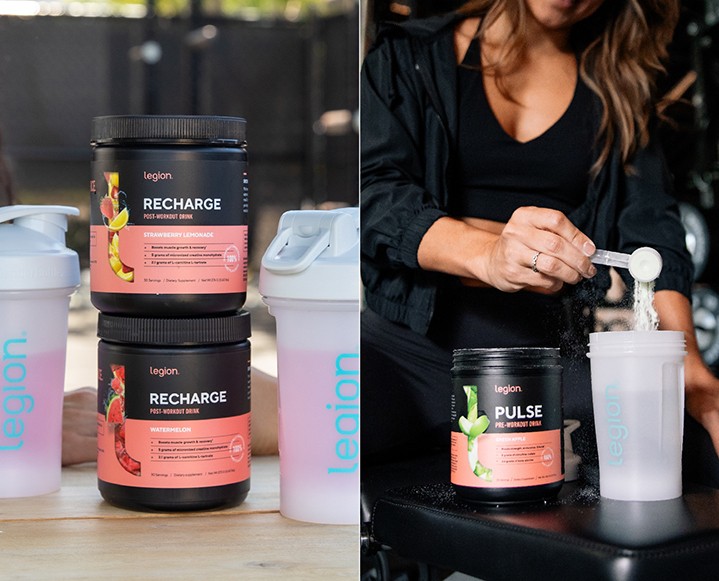Low in energy despite a great diet? Borderline anemic or have issues with the nervous system or memory? Moody or irritable? It could be that you’re experiencing symptoms of a B12 deficiency. Whether you’re a meat eater or die-hard vegan, you still might not be getting enough of this essential nutrient.
Vitamin B12 is an essential nutrient that almost 40% of us are deficient in. Yikes! So what’s the big deal? When we’re low in this nutrient it can affect our entire system leading to some serious and irreversible damage. It plays a role in nearly every function of the body and while we only need a small amount, it can be hard to source from food, and can be even harder for the system to absorb and utilize. Let’s get into it…
On Vitamin B12 + why it matters:
This vitamin plays a large role in the nervous system, adrenal and blood cell health, as well as fatty acid synthesis and energy production. It’s involved in the metabolism of every cell in the body. A deficiency can be very serious and cause permanent damage to the nervous system. Studies have found that a deficiency may be linked with a higher risk of some types of cancers, inflammation and brain and memory disorders.
Deficiency in B12 could be at the root of a long list of potential symptoms: Overall energy weakness, lethargy, chronic fatigue, changes in appetite, nausea, blood sugar issues, megaloblastic anemia (harder to diagnose than other types of anemia), tingling and numbness in hands and feet, issues with balance, mood swings, depression, irritability, confusion, poor memory, soreness of mouth or tongue, bleeding gums, dementia, Alzheimer’s disease, heart palpitations and cardiovascular disease, sexual disorders, muscle pain, weak bones, vision problems, issues with hair and nail health, issues with fetal growth and susceptibility to chronic diseases.
Food Sources of B12:
B12 is an essential nutrient, meaning the body can’t produce it on its own, so it must be sourced from our diets. Only a tiny amount is needed in order to maintain homeostasis (2.4- 2.8 micrograms a day to be exact), but there aren’t many foods that provide enough of it in a form our bodies are responsive to. It can be equally difficult for the body to absorb the nutrient from supplement sources.
Know which foods and supplements to look for, and which to pass on…
– Shellfish such as clams, oysters and mussels are excellent sources.
– Fortified foods, such as nutritional yeast are also active sources. Some fermented foods such as kimchi or kombucha may contain very small amounts of B12 too, but are not the most reliable sources.
– Red meat and organ meat can provide B12 as well. Whenever possible, source free-range, grass-fed, organic beef, vs feedlot meat. Other meats like pork and chicken are not good sources and contain very little of the nutrient.
– Algae such as spirulina and chlorella are not reliable sources of B12. These foods contain pseudo vitamins that looks and acts like the vitamin, but the body may not be able to use it in the same way.
about B12 + THE ENVIRONMENT:
Neither plants nor animals are able to produce B12; only bacteria are able to synthesize it. Some plants, however, contain minimal amounts of the nutrient because of symbiotic bacteria that live in either the plant itself of the soil it grows in. Animals eat these grasses and plant-matter and absorb it into their systems. This should transfer the nutrient to our own systems, but modern commercial farming practices – including overuse of pesticides and nitrates, plus antibiotics given to livestock – dilutes nutrients and makes it harder for us to source vitamins like B12 from food.
How to source B12 correctly:
There are four forms of vitamin B12: cyanocobalamin, methylcobalamin, adenosylcobalamin and hydroxocobalamin:
Cyanocobalamin: the most commonly sourced form of B12. Cyanocobalamin is an artificial source of B12 and must first be broken down in order to be utilized by the body. Other forms of B12 are better for absorption rates.
Methylcobalamin: the active form of B12 that is more easily absorbed in the gut and does not require any conversions. If you are having trouble absorbing B12 in general, an oral or nasal spray, skin patch, injection, or sublingual source may be needed. See our TCM pick, below.
Hydroxocobalamin: commonly used in B12 injections. It is retained by the body better than cyanocobalamin.
Adenosylcobalamin: a natural form of B12 instable in a pill form, so not commonly used in supplements.
Supplementing with high doses of B12 does not mean it will be absorbed fully. In fact in a dose of 500 mcg, a mere 1.8 mcgs may be absorbed by the body. A safe dose is 1,000 mcgs daily, and up to 5,000 mcgs, if you have a hard time absorbing it or have a chronic condition.
TCM Pick: That said, selecting the right B12 supplement is crucial. We highly reccomend B12 + Folate Patches by Healthy Habits for max absorption (not paid placement!).
have your b12 levels tested:
If a B12 deficiency sounds like it matches your symptoms, having a test done should prove helpful. The only way to ensure we’re getting enough B12 is to get our levels tested. A B12 serum blood test (or methylmalonic acid test) is easy and accurate. Results should be in the range of 211-946 pg/mL, although some believe that even levels of 350 pg/mL are still too low. For those with chronic health conditions, some doctors may recommend levels as high as 1,200 pg/mL. Note that there are many factors as well nutrients that may influence readings and B12 levels. These factors should be discussed with a doctor based on your own symptoms, health history, diet and supplements and medications being taken.
Monitor your levels with regular blood tests to see if your levels go up from supplementing and if you have any issues absorbing B12 supplement you choose.
The Chalkboard Mag and its materials are not intended to treat, diagnose, cure, or prevent any disease.
All material on The Chalkboard Mag is provided for educational purposes only. Always seek the advice of your physician or other qualified health care provider with any questions you have regarding a medical condition, and before undertaking any diet, exercise, or other health program.















